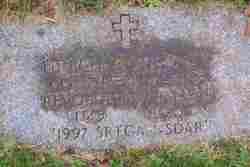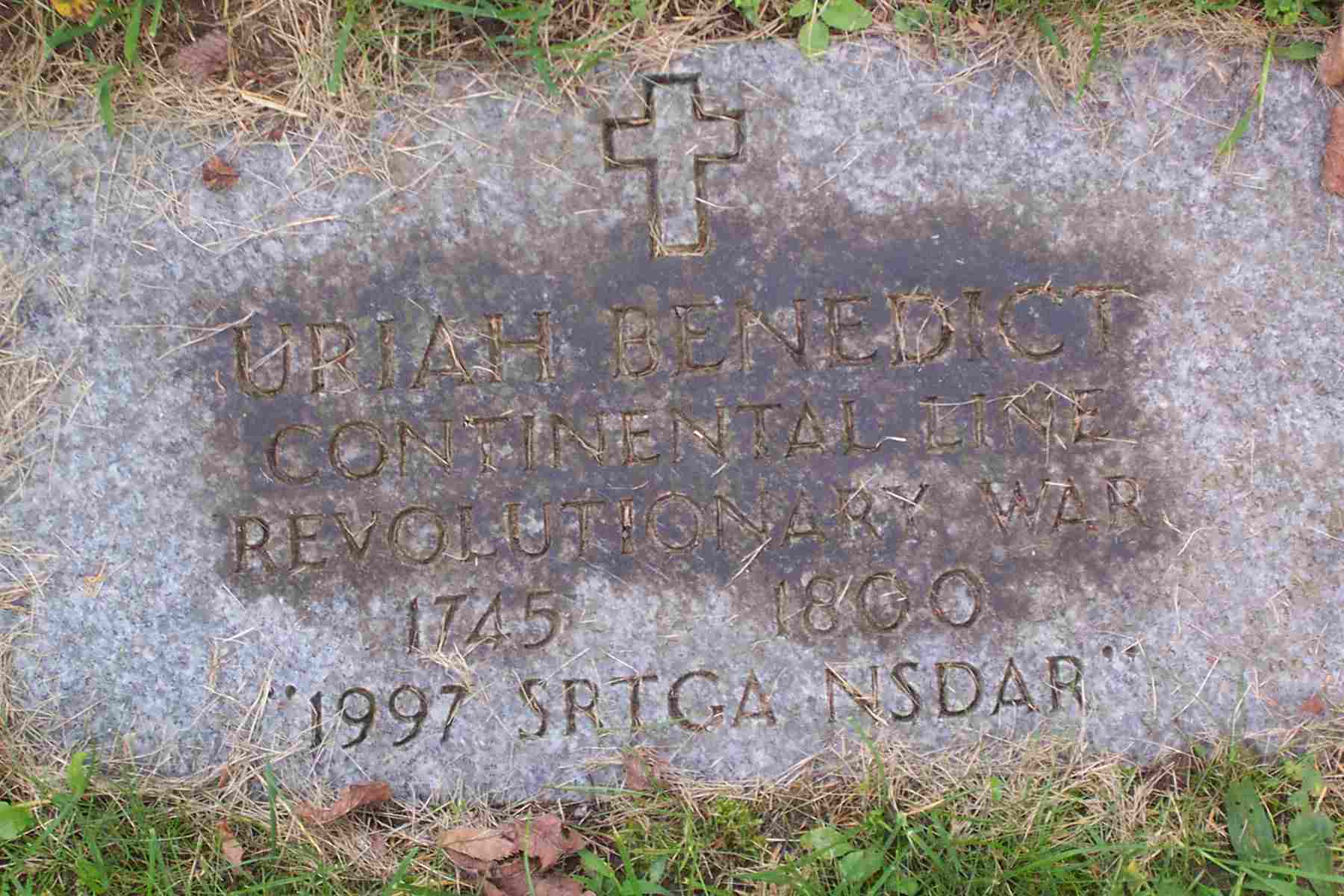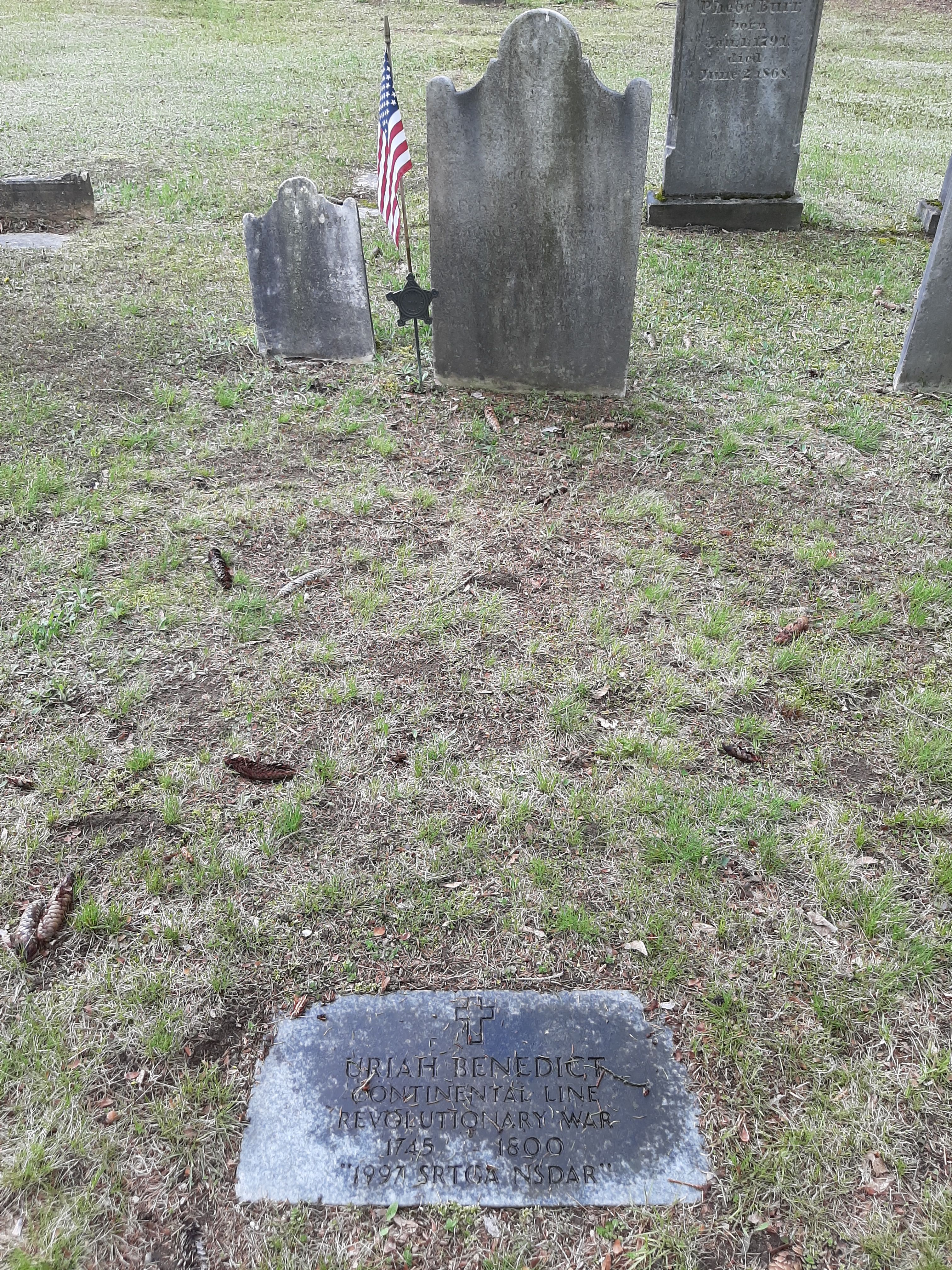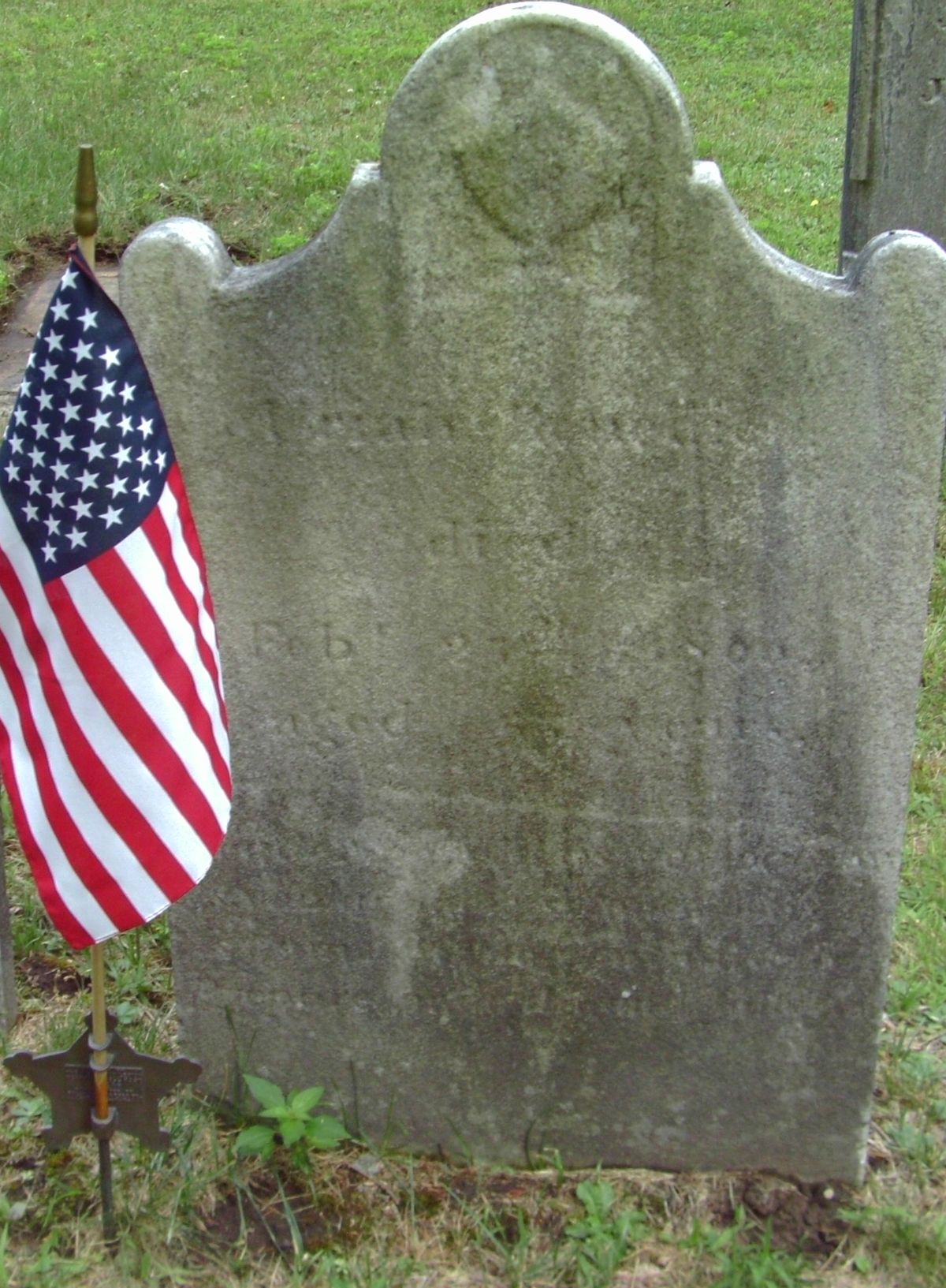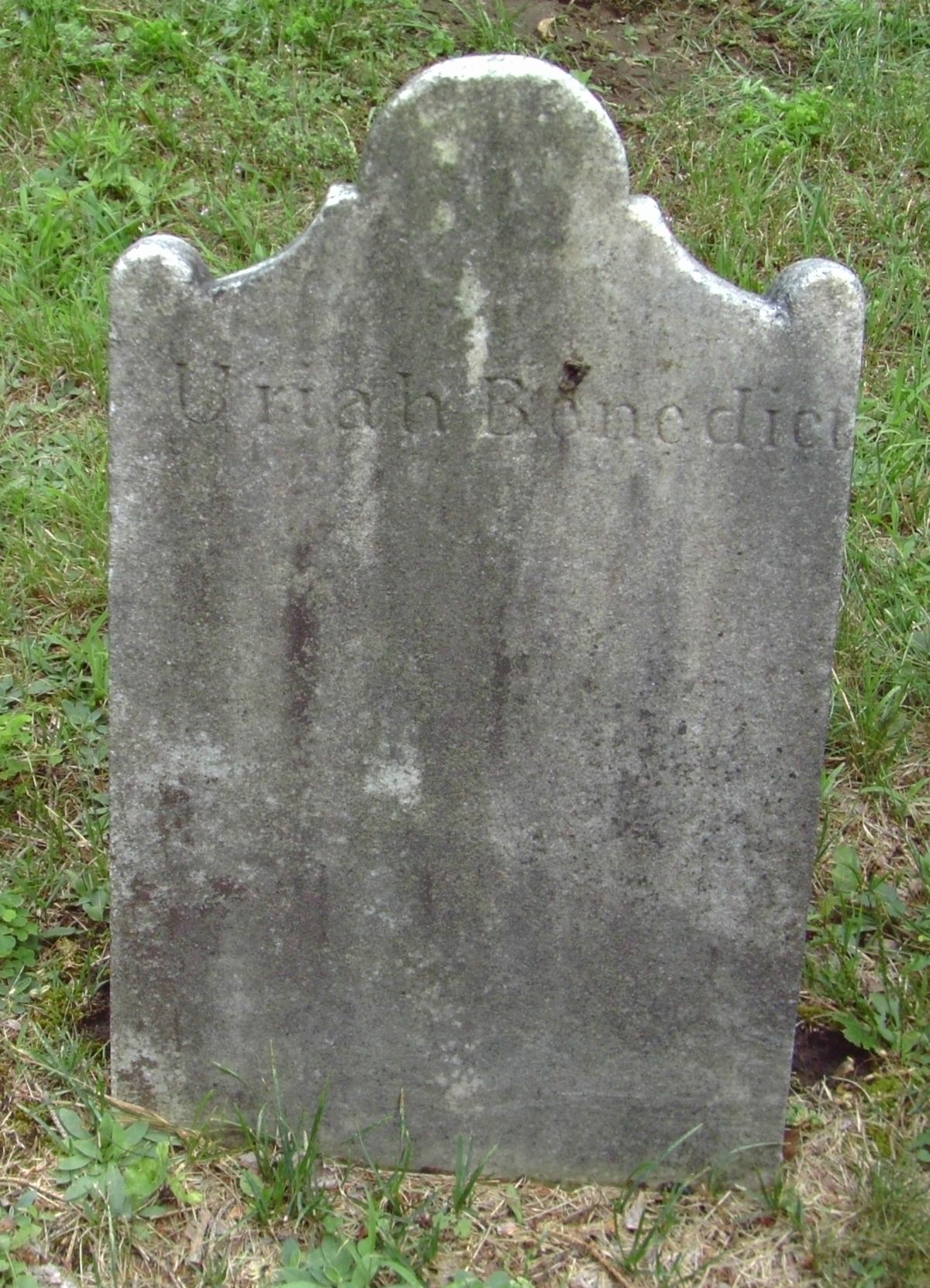[of Ballston] He served as supervisor of Baliston [now Ballston] in both 1785 and 1793. Uriah came to NY from Connecticut and had a farm on East Line Road. He had three children: Uriah, Elias and David.
From "The Genealogy of the Benedicts in America"- URIAH6 (Uriah,5 Thomas,4 Thomas,3 John,2 Thomas1), b. Oct. 1, 1765, Norwalk, Ct.; m. 1783, Ruth, dau. Joseph and Sarah (Mead) Rockwell(*) of Ballston, b. Nov. 29, 1763, in Connecticut, and d. Feb. 18, 1801, at Milton. He m. 2d, Feb., 1802, Phoebe, dau. of Benjamin and Phoebe (Rowland) Marvin,(+) b. May 18, 1779, at Lyme, Ct., and d. Sept. 27, 1825, at Albany. The father of Uriah, and his fellow settlers of Connecticut birth, had left their quiet homes and plunged into the wilderness north of Albany. While they were necessarily exposed to all the privations and perils incident to a frontier life in Revolutionary times, the peculiar situation of their settlement was fraught with additional dangers. It was on a natural route to Canada, which inevitably would become a thoroughfare for hostile expeditions from that quarter. This section was, previous to the war, the abiding place of many malignant and enterprising tories, and the fears of loyal men, that these renegades would become the guides of marauding Indians, were more than realized. In 1779, in consequence of an official warning, all loyalists abandoned their homes and repaired to Schenectady. Uriah Benedict's family was among the refugees. An attack was made by Major Monroe and his savages. The inhabitants rallied and pursued the marauders,until met by a captive who had been released, and was charged with a message from Col. Gordon, one of their prisoners, asking that they might not be pursued, because Major Monroe had ordered his men, if attacked, to kill all the prisoners. It is said, that on its becoming known in Montreal that Monroe had given so brutal an order, he was cashiered. Uriah Jr., then in his fourteenth year, probably, was engaged in this pursuit, for his name appears on the pay-roll of that period. He saw service again, in the fall of 1781. He went on foot through the woods to Waterford, a distance of some fourteen miles, and enlisted among the three months men, for the defense of the frontier, then menaced by St. Leger's expedition. Soon after, his father heard that he was seen pursued by an Indian, and was probably killed. After a troublesome journey of seventy miles which Uriah Sr. had made to bring home the body of his son, he found him celebrating some great success of the American arms, probably the surrender of Cornwallis. It seems the son had gained a tree, and consequently an advantage which enabled him to kill his pursuer.
[of Ballston] He served as supervisor of Baliston [now Ballston] in both 1785 and 1793. Uriah came to NY from Connecticut and had a farm on East Line Road. He had three children: Uriah, Elias and David.
From "The Genealogy of the Benedicts in America"- URIAH6 (Uriah,5 Thomas,4 Thomas,3 John,2 Thomas1), b. Oct. 1, 1765, Norwalk, Ct.; m. 1783, Ruth, dau. Joseph and Sarah (Mead) Rockwell(*) of Ballston, b. Nov. 29, 1763, in Connecticut, and d. Feb. 18, 1801, at Milton. He m. 2d, Feb., 1802, Phoebe, dau. of Benjamin and Phoebe (Rowland) Marvin,(+) b. May 18, 1779, at Lyme, Ct., and d. Sept. 27, 1825, at Albany. The father of Uriah, and his fellow settlers of Connecticut birth, had left their quiet homes and plunged into the wilderness north of Albany. While they were necessarily exposed to all the privations and perils incident to a frontier life in Revolutionary times, the peculiar situation of their settlement was fraught with additional dangers. It was on a natural route to Canada, which inevitably would become a thoroughfare for hostile expeditions from that quarter. This section was, previous to the war, the abiding place of many malignant and enterprising tories, and the fears of loyal men, that these renegades would become the guides of marauding Indians, were more than realized. In 1779, in consequence of an official warning, all loyalists abandoned their homes and repaired to Schenectady. Uriah Benedict's family was among the refugees. An attack was made by Major Monroe and his savages. The inhabitants rallied and pursued the marauders,until met by a captive who had been released, and was charged with a message from Col. Gordon, one of their prisoners, asking that they might not be pursued, because Major Monroe had ordered his men, if attacked, to kill all the prisoners. It is said, that on its becoming known in Montreal that Monroe had given so brutal an order, he was cashiered. Uriah Jr., then in his fourteenth year, probably, was engaged in this pursuit, for his name appears on the pay-roll of that period. He saw service again, in the fall of 1781. He went on foot through the woods to Waterford, a distance of some fourteen miles, and enlisted among the three months men, for the defense of the frontier, then menaced by St. Leger's expedition. Soon after, his father heard that he was seen pursued by an Indian, and was probably killed. After a troublesome journey of seventy miles which Uriah Sr. had made to bring home the body of his son, he found him celebrating some great success of the American arms, probably the surrender of Cornwallis. It seems the son had gained a tree, and consequently an advantage which enabled him to kill his pursuer.
Family Members
Advertisement
Explore more
Sponsored by Ancestry
Advertisement
